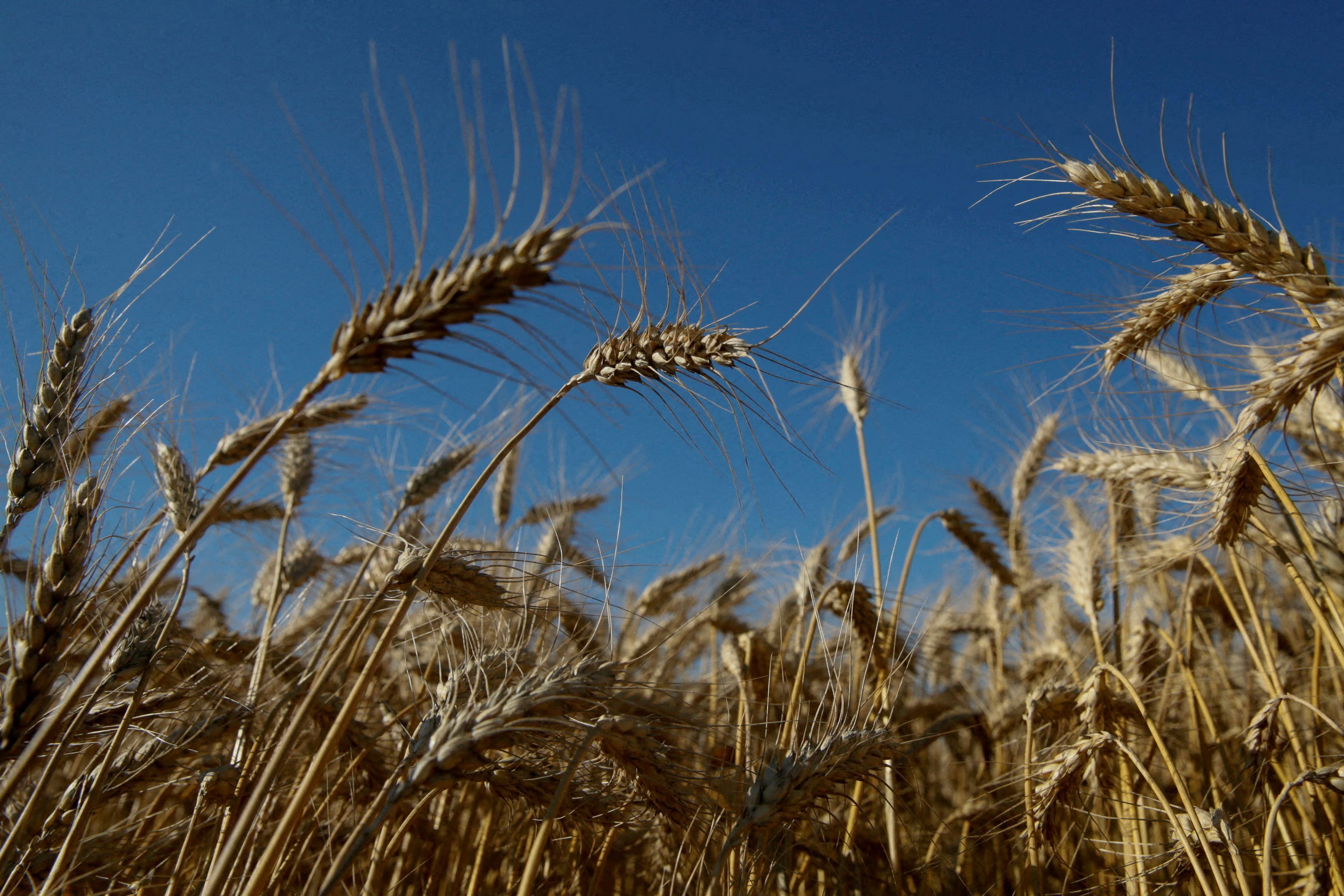Agriculture minister warns world will feel loss of Ukraine's grain exports by summer
Sign up now: Get ST's newsletters delivered to your inbox

Fears of a global food crisis are intensifying amid concerns that Russian President Vladimir Putin is using food as a weapon in the conflict.
PHOTO: REUTERS
LVIV (NYTIMES) - Ukraine's minister of agriculture warned that by midsummer the world would start to feel the squeeze to food supplies and rising grain prices caused by Russia's blockade of Ukrainian sea exports.
Global food distribution networks, still recovering from the shocks of the pandemic, are now facing a new crisis as a result of Russia's invasion of Ukraine - the two countries that together supplied more than a quarter of the world's wheat.
"Countries right now still have some reserves, and they are still under the general hope that somehow, this will work itself out," the minister, Mr Mykola Solskyi, said in an interview with The New York Times.
"But when they see in July or August that they are running out of grain, and that the prices are extremely high, then the world will start to show a lot of emotions. There will be problems because of it."
Fears of a global food crisis are intensifying amid concerns that Russian President Vladimir Putin is using food as a potent new weapon in the conflict.
Russian forces, in addition to bombarding and seizing large swathes of Ukraine's fertile farmland, have taken over some ports and blockaded the remaining sea routes on the Black Sea used for exporting most of Ukraine's wheat, barley, corn, sunflower seeds and rapeseed oils.
UN monitored talks are attempting to reach a deal for sea exports, he said. But he rejected a proposal floated Wednesday (May 25) by Russia's deputy foreign minister to open sea routes in exchange for lifting some sanctions on Russia.
"The limitations of exporting grain out of Ukraine is a world problem - it's not just a Ukrainian problem," he said. "And that's why we think that any demands about lifting the sanctions are wrong."
Asked how likely Mr Solskyi thought a deal was, he said: "On a scale of one to 10? I give it five."
European and Ukrainian officials have been scrambling to bring the country's harvests to global markets via trucks, railroads, river barges and other alternative routes.
But these options are complicated. Exporting by land out of western Ukraine means passing through border crossings that require trucks to wait in line for days. The other option, transport by rail, requires adapting train cars to tracks of different widths, a major logistical headache.
According to the country's main agricultural lobby, land routes working at optimal capacity could only bring out 3 million tons per month - about two-thirds of what the country normally exports.
"It's impossible to solve the problem completely without the sea," Mr Solskyi said.
Ukrainian farmers say Russian forces have also stolen large quantities of their stored grain.
The minister warned international traders against buying stolen Ukrainian grain, saying Kyiv would seek to sanction those who profited from stolen grain.
Kyiv was closely watching ships passing through the Black Sea and the Bosporus, he said, and was collecting information from grain traders of movements of stolen crops.
"At the very least we will ask for sanctions on traders who engage in this," he said.


